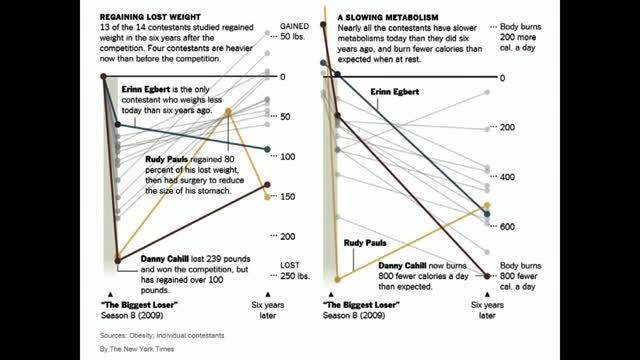Premium Only Content

Dr. Jason Fung: Fasting as a Therapeutic Option for Weight Loss
Dr. Jason Fung: Fasting as a Therapeutic Option for Weight Loss
Description
Dr. Jason Fung: Fasting as a Therapeutic Option for Weight Loss
67K
Likes
5,785,234
Views
2019
Jul 28
Dr. Jason Fung, MD, is a nephrologist and expert in the use of intermittent fasting and low-carbohydrate diets for the treatment of Type 2 diabetes. In this presentation, delivered on Aug. 2, 2018, at the 2018 CrossFit Health Conference in Madison, Wisconsin, Fung shares his first-hand experiences with “The Mess” and discusses how he shifted his research and medical practices as a result of those experiences.
Fung’s objectives for his presentation include:
1. Understanding why long-term weight loss is so difficult.
2. Introducing the concept of therapeutic fasting.
3. Understanding some myths and misunderstandings associated with the fasting process.
He recalls treating obese and diabetic patients with traditional methods, which included what he characterizes as poor dietary recommendations and a slurry of drugs. He explains, “It became obvious that I’m just sort of holding their hand until they get their heart attack, until they get dialysis, until they go blind, until we chop their feet off.”
“It’s really sad to realize that the profession that you’ve chosen is not really helping people,” he says. This realization compelled him to diagnose the problems associated with traditional care and seek alternative treatment methods for his patients.
Fung historicizes what he calls “the modern eating pattern,” which emerged in 1977 in the U.S. with the development of the Dietary Guidelines for Americans. He notes the 1977 guidelines led to the consumption of more grains and sugars, which in turn led to people “eating often, eating late, and eating all the time.”
Incidences of obesity and Type 2 diabetes reached epidemic levels, and the most common treatments long have been drug interventions. Unfortunately, the prevailing non-pharmaceutical prescription — to eat less and move more — has a 99.9% failure rate. Fung observes that popular wisdom tells us to blame the patient and assume he or she did not adhere to the prescription. He claims a basic understanding of metabolism suggests otherwise, however.
Fung explains why a significant reduction in caloric intake leads to a decrease in basal metabolism. This biological inevitability is ignored by the proponents of the “calories in, calories out” fallacy, he observes.
He also explains why intermittent fasting is an effective alternative to traditional treatments for obesity and diabetes. The modern eating pattern keeps our insulin levels high all the time as we eat over long durations, and when insulin remains high all the time, Fung explains, our bodies store food energy as fat, and we remain hungry.
Intermittent fasting, on the other hand, allows insulin levels to drop, which puts us in burning mode rather than storing mode.
Fung claims his recommendations are so effective that patients no longer need to say, “Oh wow, I have to go see my doctor to see what pill I need,” or, “I need to go see my doctor to see if he needs to stick a stent in me.” Instead, Fung explains, “We’re giving you the power to take back your own health, because you’re not gonna get it from anywhere else.”
-
 LIVE
LIVE
The Big Mig™
5 hours agoConfirmed Kash Patel New FBI Director, Bring On The Pain |EP483
803 watching -
 53:59
53:59
Tactical Advisor
1 hour agoThe Vault Room Podcast 009 | Everyone Getting $5000?!
4.93K -
 LIVE
LIVE
TheAlecLaceShow
12 hours agoLive at CPAC | Interviews with Dean Cain, Rep. Comer and more! | The Alec Lace Show
277 watching -
 LIVE
LIVE
Major League Fishing
2 days agoLIVE Tackle Warehouse Invitationals, Stop 1, Day 2
428 watching -
 LIVE
LIVE
I_Came_With_Fire_Podcast
9 hours agoNOC Spy: CIA uses SATANIC RITUAL ABUSE to make SLEEPER Cells
288 watching -
 28:42
28:42
CatfishedOnline
22 hours agoWoman Insists Morgan Wallen Relationship Isn't a Romance Scam!
1.09K -
 16:25
16:25
TSPLY
22 hours agoNew CNN / MSNBC Meltdown Moments Of Getting Mad At Donald Trump In February
3.09K4 -
 8:33
8:33
scoutthedoggie
2 hours agoAirsoft War Games Scotland
1.38K1 -
 4:56
4:56
Kirill MultitoolOfficial
1 day ago $0.09 earnedSurvival TIPS and usefull bushcraft DIY in the wild
1.56K2 -
 27:25
27:25
ArturRehi
1 day agoThis is How Dictatorships are Formed
845